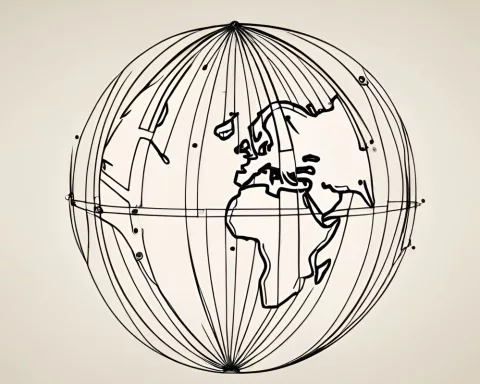The Design Innovation Seed Fund (DISF) is a funding opportunity for innovative designers, inventors, entrepreneurs, and product developers who are yet to generate revenue. Managed by CDI Capital, it offers financial aid to assist recipients in designing and building prototypes, testing solutions, and confirming their hypotheses about technical and market-related challenges, acting as an accelerator for innovation. The DISF has already allocated R17.8 million in grant funding, sparking the development of 35 innovative products and attracting investments amounting to R377 million, proving to be an invaluable asset for early-stage innovation.
What is the Design Innovation Seed Fund (DISF)?
The Design Innovation Seed Fund (DISF) is a funding opportunity initiated by the Craft and Design Institute (CDI) that aims to empower innovative designers, inventors, entrepreneurs, and product developers who are yet to generate revenue. Managed by CDI Capital, the DISF offers financial aid to assist recipients in designing and building prototypes, testing solutions, and confirming their hypotheses about technical and market-related challenges, acting as an accelerator for innovation.
A Bold Step Towards Innovation
The Craft and Design Institute (CDI) has initiated a groundbreaking move to stoke the fires of innovation and technological advancement. It has announced the opening of applications for the Design Innovation Seed Fund (DISF), a funding opportunity that could offer up to R800,000 in grant assistance. This move aims to empower innovative designers, inventors, entrepreneurs, and product developers who are yet to generate revenue. The establishment of this seed fund is a united endeavor, the result of the collaborative efforts of CDI, the Technology Innovation Agency (TIA), and the Western Cape Department of Economic Development and Tourism (DEDAT).
The DISF: Empowering SMEs
Managed by CDI Capital, a subsidiary of the CDI since 2016, the DISF symbolises financial empowerment for Small and Medium-sized Enterprises (SMEs). The establishment of the DISF in 2014 ushered in a new epoch in the South African business environment, providing a crucial financial boost to innovators in their early stages. As the current phase wraps up, marking the final invitation for applications in this funding cycle, it’s evident that DISF’s journey so far has been nothing short of astonishing.
The DISF has already allocated R17.8 million in grant funding, sparking the development of 35 innovative products. These funded projects have earned awards, gained both local and international attention, and attracted investments amounting to R377 million, surpassing all initial goals. This seed fund has proven to be an invaluable asset for those who might not be eligible for conventional funding sources due to the risks inherent in early-stage innovation.
The Role of DISF in Spurring Innovation
The DISF acts as an accelerator for innovation, offering financial aid to assist recipients in designing and building prototypes, testing solutions, and confirming their hypotheses about technical and market-related challenges. Applications that contribute to the creation of defensible intellectual property are encouraged from a broad range of sectors. These sectors include agritech, biotechnology and health, construction, advanced manufacturing technology, low-carbon technology, renewable energy, information communication technology, and software engineering, encompassing data analytics, machine learning, and artificial intelligence.
According to Erica Elk, Group CEO at the CDI, the DISF has been instrumental in fostering some remarkable South African innovations. She stressed that the resources provided by the DISF have given innovators the much-needed freedom to progress in their entrepreneurial journey.
Eligibility and Application Guidelines
The DISF is open to South African citizens with valid IDs or legal entities controlled by them or permanent residents. It is also accessible to early-stage SMEs, entrepreneurs, researchers, and students at tertiary institutions, provided these institutions do not hold an Intellectual Property claim to the product or service. Pre-revenue businesses in incubation or entering incubation, and existing SMEs with new products or innovations that are still pre-revenue, are also eligible. However, to qualify, SMMEs must possess a valid Tax Certificate for the company or the individual applying. The application deadline for this transformative opportunity is Friday, 15 December 2023 at 5 pm. Prospective applicants are urged to comprehend the application guidelines thoroughly before submitting their proposals.
The Impact of DISF: Success Stories and Beyond
The DISF has already contributed to the success of several businesses, including Cape Aerospace Technologies, GoMetro, Impulse Biomedical, LIQID Medical, Legal Connection, and SwiftVEE. These businesses have not only experienced growth but have also managed to develop new, innovative products, secure valuable patents, and even attract additional investment.
The ongoing success of the DISF exemplifies the potential of targeted investment in innovation. It emphasizes the importance of providing resources to businesses in their early stages and its impact on the broader economic landscape. Through initiatives like the DISF, the CDI, TIA, and DEDAT continue to cultivate a culture of innovation that can motivate and equip the next generation of South African entrepreneurs.
1. What is the Design Innovation Seed Fund (DISF)?
The Design Innovation Seed Fund (DISF) is a funding opportunity initiated by the Craft and Design Institute (CDI) that aims to empower innovative designers, inventors, entrepreneurs, and product developers who are yet to generate revenue. Managed by CDI Capital, the DISF offers financial aid to assist recipients in designing and building prototypes, testing solutions, and confirming their hypotheses about technical and market-related challenges, acting as an accelerator for innovation.
2. Who is eligible to apply for the DISF?
The DISF is open to South African citizens with valid IDs or legal entities controlled by them or permanent residents. It is also accessible to early-stage SMEs, entrepreneurs, researchers, and students at tertiary institutions, provided these institutions do not hold an Intellectual Property claim to the product or service. Pre-revenue businesses in incubation or entering incubation, and existing SMEs with new products or innovations that are still pre-revenue, are also eligible. However, to qualify, SMMEs must possess a valid Tax Certificate for the company or the individual applying.
3. What is the role of the DISF in spurring innovation?
The DISF acts as an accelerator for innovation, offering financial aid to assist recipients in designing and building prototypes, testing solutions, and confirming their hypotheses about technical and market-related challenges. Applications that contribute to the creation of defensible intellectual property are encouraged from a broad range of sectors.
4. How has the DISF impacted the South African business environment?
The DISF has already allocated R17.8 million in grant funding, sparking the development of 35 innovative products. These funded projects have earned awards, gained both local and international attention, and attracted investments amounting to R377 million, surpassing all initial goals. This seed fund has proven to be an invaluable asset for those who might not be eligible for conventional funding sources due to the risks inherent in early-stage innovation.
5. What are the application guidelines for the DISF?
The DISF is open to South African citizens with valid IDs or legal entities controlled by them or permanent residents. It is also accessible to early-stage SMEs, entrepreneurs, researchers, and students at tertiary institutions, provided these institutions do not hold an Intellectual Property claim to the product or service. Pre-revenue businesses in incubation or entering incubation, and existing SMEs with new products or innovations that are still pre-revenue, are also eligible. However, to qualify, SMMEs must possess a valid Tax Certificate for the company or the individual applying. The application deadline for this transformative opportunity is Friday, 15 December 2023 at 5 pm.
6. What are some success stories resulting from the DISF?
The DISF has already contributed to the success of several businesses, including Cape Aerospace Technologies, GoMetro, Impulse Biomedical, LIQID Medical, Legal Connection, and SwiftVEE. These businesses have not only experienced growth but have also managed to develop new, innovative products, secure valuable patents, and even attract additional investment.












